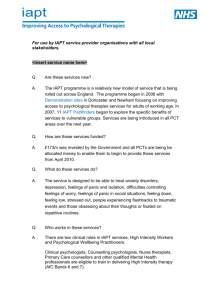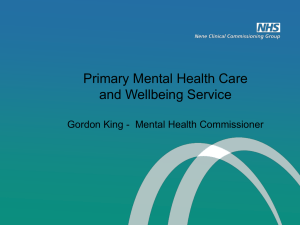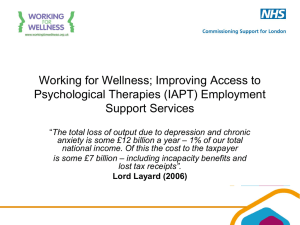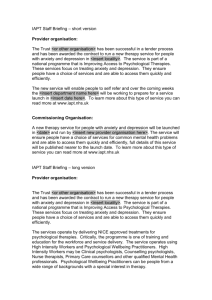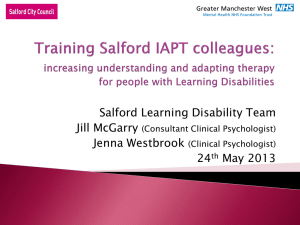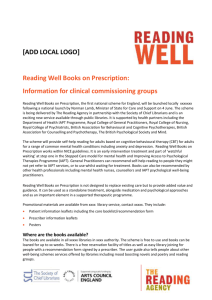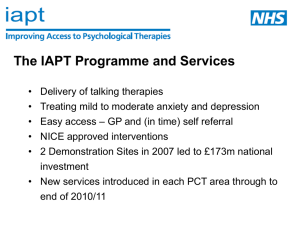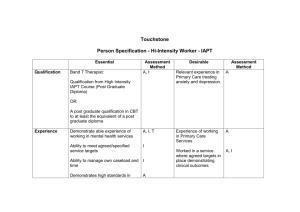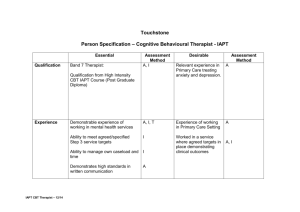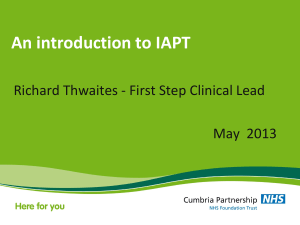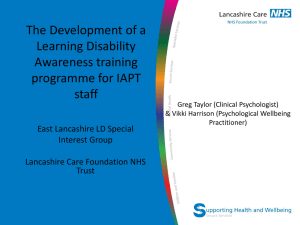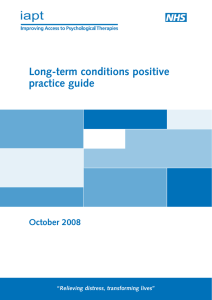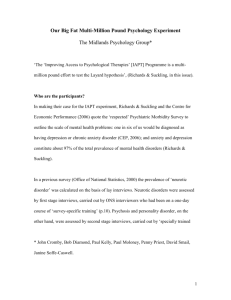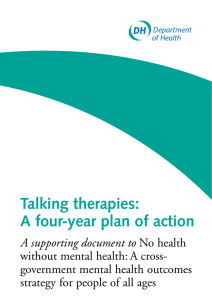Communications Toolkit
advertisement
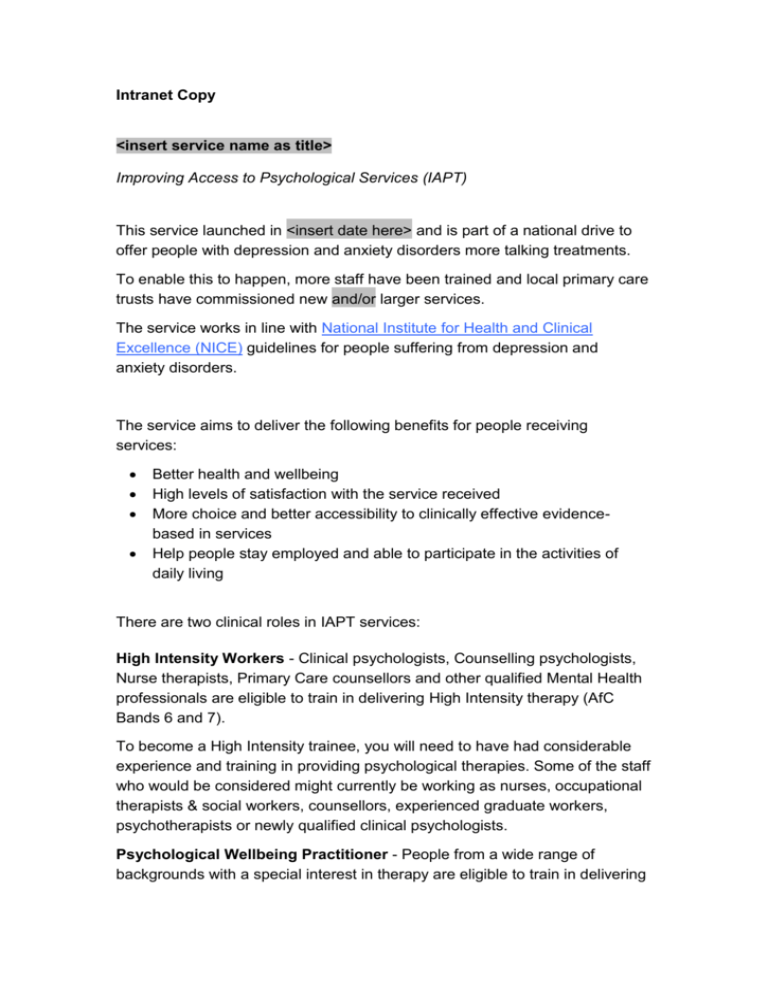
Intranet Copy <insert service name as title> Improving Access to Psychological Services (IAPT) This service launched in <insert date here> and is part of a national drive to offer people with depression and anxiety disorders more talking treatments. To enable this to happen, more staff have been trained and local primary care trusts have commissioned new and/or larger services. The service works in line with National Institute for Health and Clinical Excellence (NICE) guidelines for people suffering from depression and anxiety disorders. The service aims to deliver the following benefits for people receiving services: Better health and wellbeing High levels of satisfaction with the service received More choice and better accessibility to clinically effective evidencebased in services Help people stay employed and able to participate in the activities of daily living There are two clinical roles in IAPT services: High Intensity Workers - Clinical psychologists, Counselling psychologists, Nurse therapists, Primary Care counsellors and other qualified Mental Health professionals are eligible to train in delivering High Intensity therapy (AfC Bands 6 and 7). To become a High Intensity trainee, you will need to have had considerable experience and training in providing psychological therapies. Some of the staff who would be considered might currently be working as nurses, occupational therapists & social workers, counsellors, experienced graduate workers, psychotherapists or newly qualified clinical psychologists. Psychological Wellbeing Practitioner - People from a wide range of backgrounds with a special interest in therapy are eligible to train in delivering Low Intensity interventions (AfC Band 4) as a psychological wellbeing practitioner Psychological wellbeing practitioner (Low Intensity) trainees have preferably worked in local communities or mental health services, can demonstrate that they meet the training programme’s academic levels and are interested to work with this client group. They can be graduates or non-graduates. Accessing the Service: Visit our website Links: Our other psychological services Find your nearest GP (PCT website(s)) National IAPT Programme New Horizons IAPT Vacancies (search using keyword IAPT) Website Copy If devising a whole website for the IAPT service more extensive copy will naturally be needed but the following could be used in a wider corporate website. <insert service name as title> Improving Access to Psychological Services (IAPT) This service launched in <insert date here> and is part of a national drive to offer people with depression and anxiety disorders more talking treatments. To enable this to happen, more staff have been trained and local primary care trusts have commissioned new and/or larger services. We want to ensure that people have a choice of services for common mental health problems and that they are able to access these services quickly and efficiently. IAPT services have been introduced to ensure that people are referred to the most appropriate support for their experience of common mental health problems such as anxiety and depression. IAPT services are designed to get the best results and help you to help yourself, supporting you to get back to enjoying life and engaging with work or daily activities. People’s experiences of anxiety and depression often differ and so various levels of support may be needed. Who is the service for? Anyone who feels they are….. Anxious? Depressed? Experiencing feelings of panic? Isolated? Finding it hard to control feelings of worry? Feeling Down? Feeling low? Stressed out? Experiencing feelings of panic in social situations? Experiencing flash backs of traumatic events? Obsessing about their thoughts or stuck in a repetitive routine? What treatments does the service offer? People with mild to moderate anxiety and depression may be offered guided self help or invited to take part in a therapeutic group discussion. Evidence shows the support of a trained practitioner makes a significant difference to the progress people make. If applicable <In addition to the services described above, a computerised cognitive behavioural therapy service (cCBT) is also available. People with milder levels of depression or anxiety may find it very helpful. This is an alternative to a one-to-one session with a therapist.> Services will also have administrative staff, employment advisors, a GP advisor and links with other services such as housing, drugs advice and benefits People with moderate and severe depression and anxiety disorders need a greater level of treatment and support and may require a more intensive programme of treatment called High Intensity Therapy. If you recognise that you are experiencing the symptoms mentioned and you think that you might benefit from these services contact us or speak to your GP today for advice and information on the best service for you. How do I get an appointment? <Enter your local referral info here> if only via GP have a contact mechanism for your local GPs to be able to request a referral info sheet. Other resources Place videos re NHS Credit Crunch Stressline and IAPT services here. Links and Downloads Our other psychological services Find your nearest GP (PCT website(s)) Patient Information Leaflet for IAPT service Any Patient Information Self Help Guides for anxiety or depression PALs National Institute for Health and Clinical Excellence (NICE)
